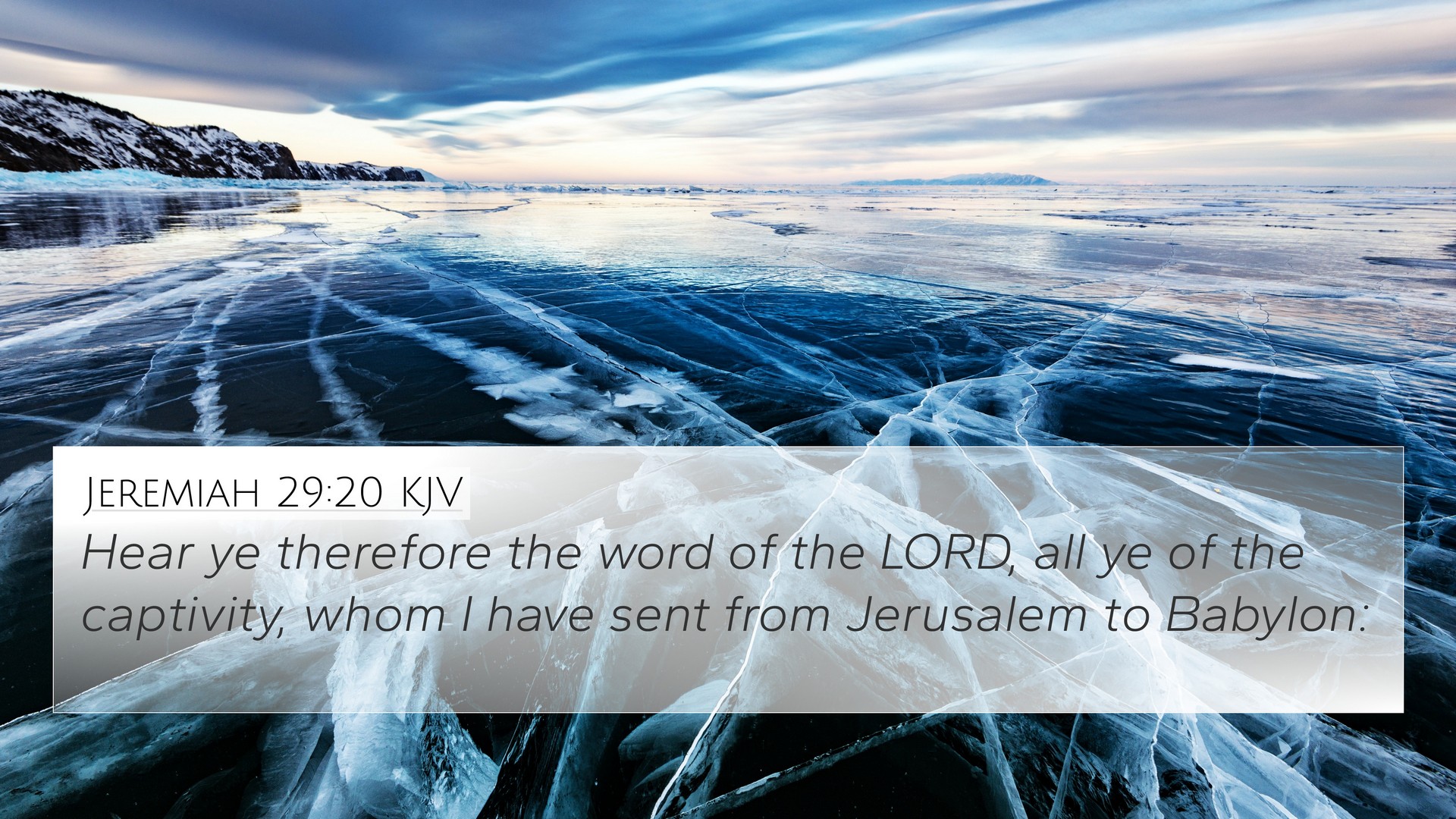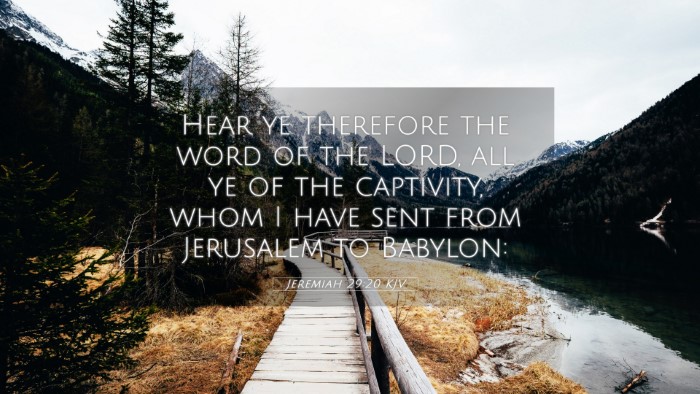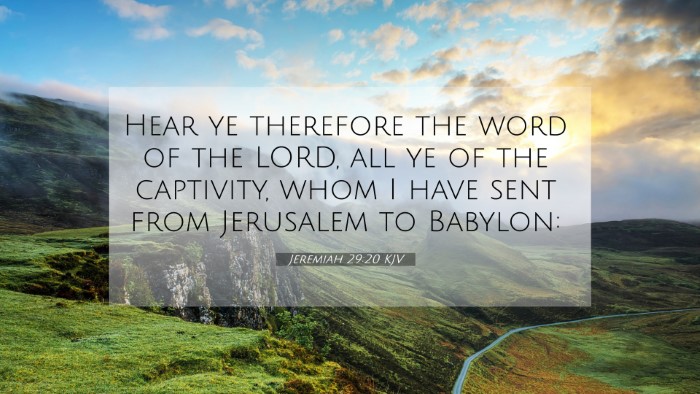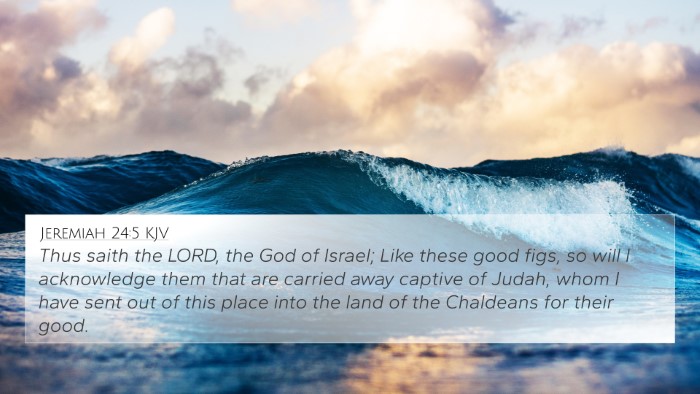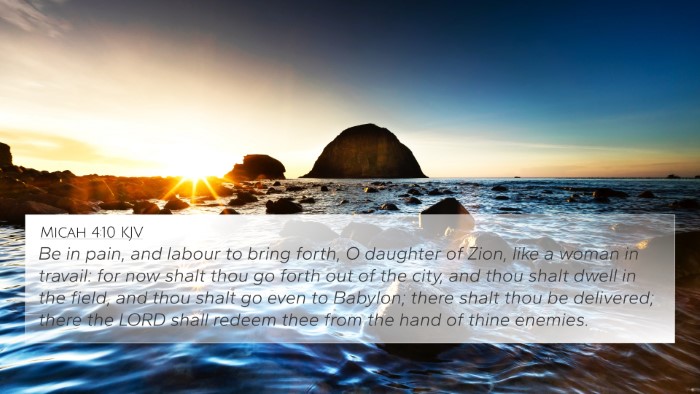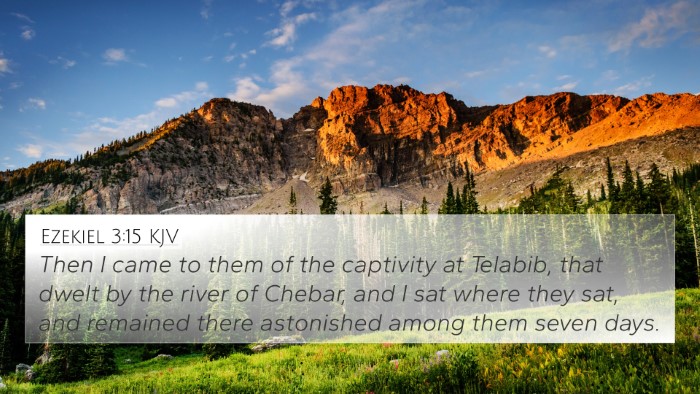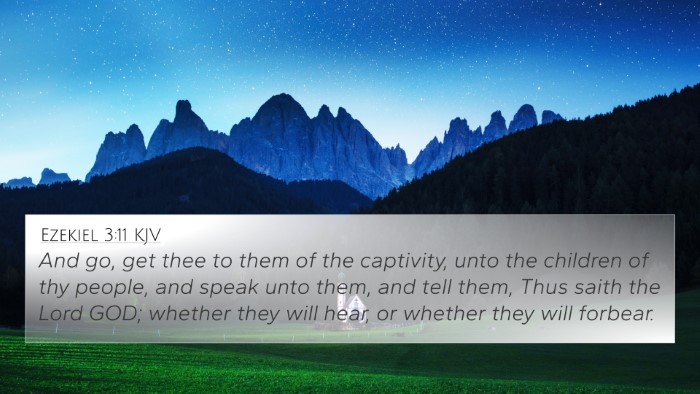Understanding Jeremiah 29:20
Verse Context: Jeremiah 29:20 states: "Hear therefore the word of the Lord, all ye of the captivity, whom I have sent from Jerusalem to Babylon." This verse emphasizes God's message to the exiles in Babylon, reinforcing His promise and plans even in their dire circumstances. While primarily addressing the exiled Israelites, it also indicates a broader principle of divine communication and assurance.
Summarized Insights from Public Domain Commentaries
This section summarizes insights from respected commentators such as Matthew Henry, Albert Barnes, and Adam Clarke regarding Jeremiah 29:20.
- Matthew Henry: Henry emphasizes the importance of divine warnings and calls to repentance found in the context of this verse. He notes that understanding God's word is crucial for those in captivity, implying that the message serves as a lifeline for the spiritually discontented.
- Albert Barnes: Barnes provides an interpretation highlighting the urgency and necessity of listening to God's word, particularly for the captives. He also stresses the continuity of God's promises to Israel, assuring them that His intentions remain steadfast despite their current plight.
- Adam Clarke: Clarke notes that this verse is part of a prophetic message intended to comfort the captives. He elaborates on the role of prophecy as not just foretelling but also guiding God’s people in their hardship, linking the message of Jeremiah to themes of hope and perseverance.
Key Themes in Jeremiah 29:20
This verse encapsulates several thematic elements that resonate throughout the Bible:
- Divine Communication: God's willingness to reach out to His people, particularly in times of crisis.
- Hope and Restoration: While addressing the immediate circumstance, the verse hints at future restoration for the exiles.
- Faithfulness of God: The assurance that God's promises transcend physical conditions, speaking to His eternal purpose for His people.
Related Bible Verse Cross-References
This verse connects with several other scriptures that reinforce its themes. Notably:
- Jeremiah 29:11: For I know the plans I have for you, declares the Lord.
- Ezekiel 36:24-26: God promises to regather His people and give them a new heart.
- Isaiah 40:1-2: Comfort, comfort my people, speaks to God's desire to console His people.
- Psalms 126:1-3: A song of ascent reflecting joy in restoration from captivity.
- Romans 8:28: All things work together for good to those who love God.
- Hebrews 13:5: God assures He will never leave or forsake His people.
- 1 Peter 5:10: Assurance that God will restore those who have suffered.
Connecting Themes and Cross-Referencing
When engaging in Bible verse cross-referencing, Jeremiah 29:20 serves as a foundational text that links both the Old and New Testament themes of hope, repentance, and God's enduring faithfulness. This encourages a deeper exploration of scriptural connections, allowing readers to draw parallels that inform their understanding of God’s character across different contexts.
How to Use Bible Cross-References
Utilizing cross-references to study Jeremiah 29:20 can enhance understanding and provide a broader perspective on themes such as:
- God’s faithfulness in times of trials.
- The importance of listening to God's word.
- The promise of eventual restoration and healing.
Conclusion
In summary, Jeremiah 29:20 is a poignant reminder of God's unwavering communication and intention towards His people, particularly in their difficult times. By engaging with related scriptures through tools for Bible cross-referencing, readers can uncover a richer understanding of the inter-Biblical dialogue that shapes biblical themes and presents a cohesive narrative of God's relationship with humanity.
